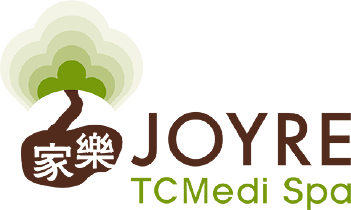
Traditional Chinese Medicine (TCM) recognizes Qi Deficiency as a pattern of illness.
Qi deficiency happens where there is a loss of qi energy, the vital life force that circulates throughout our bodies. The lack of qi can cause physical and emotional symptoms to manifest. The symptoms may vary from person to person, but usually involves depression, lethargy, profuse sweating even without much exertion, weak heartbeat, diarrhea, and a swollen tongue.
Spleen Qi Deficiency Is The Most Common
There are several types of qi deficiency. The most common is spleen qi deficiency. In western medicine, spleen is not considered as a vital organ. However in TCM, the spleen is responsible for digestion together with the stomach and is considered a very important organ as it is the source of qi and blood. The spleen is the first organ that TCM physicians look at when they suspect a qi deficiency. The spleen functions to draw energy from the food we eat and convert it into energy.
A spleen qi deficiency therefore will manifest as digestive issues, such as nausea, diarrhea, bloating, appetite loss and acid reflux. Spleen qi deficiency is usually the result of overworking, poor diet and emotional disturbances.
Spleen Is Closely Related to the Other Organs In Your Body
The spleen, stomach, and lungs are closely linked in TCM, and a spleen qi deficiency may also affect the function of these organs. A heart qi deficiency may display symptoms such as overt sweating, intense palpitations, restlessness, anxiety, and mood swings.
Lung Qi Deficiency
One of the most obvious symptoms of lung qi deficiency is a persistent cough. It is not a loud, aggressive cough that is associated with excess qi energy, but more of a weak and continuous cough. Breathlessness and hoarse voice are also other signs of lung qi deficiency. As the lungs act as the protective organ against external pathogens, people with lung qi deficiency also tend to catch a cold more easily than others.
Kidney Qi Deficiency
The kidneys house the body’s yin and yang energies, where kidney yin transforms into kidney yang to carry out different functions in the body. Kidney qi deficiency manifests as asthma, cold limbs, loss of hair and urinary issues.
Treat Qi Deficiency With Acupuncture
TCM believes that qi deficiency could eventually lead to chronic illnesses such as heart disease, high blood pressure, and stroke. To prevent this, early onset of qi deficiency symptoms should be taken seriously and the necessary steps taken to treat the body from the inside out.
Herbal remedies are normally the first line of defense. Herbal remedies are usually made from a concoction of herbs tailored to each patient.
For more serious qi imbalances, acupuncture may be recommended to correct the energy imbalance along specific meridians. Each organ has its own meridians and acupuncture points, and by stimulating these points, the organ function can be strengthened.
Have Healthy Sleep Habits
The age-old adage of getting plenty of rest holds true in this case. People who suffer from qi deficiency usually work long hours, are highly stressed, and deprived of sleep. To improve qi energy, TCM recommends at least 8 hours of sleep and focuses on reducing stress.
Improve Qi Deficiency With Joyre TCMedi Spa
Joyre TCMedi Spa uses the same Traditional Chinese Medicine principles to restore health for our patients. Our TCM physicians and therapists have many years of experience in Tuina massage, moxibustion, acupuncture, herbal spa, and operating advance wellness instruments.
Call or WhatsApp 9230 0355 to request an appointment.
